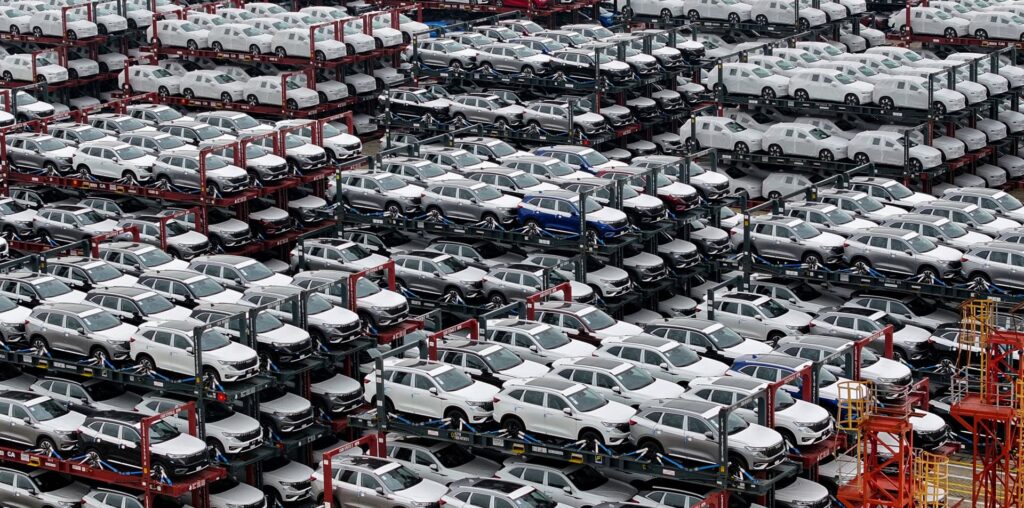Aerial photograph shows electric cars for export stacked at the international container terminal of Taicang Port in Suzhou, in China’s eastern Jiangsu Province. The EU and China have reportedly agreed to start talks on the planned imposition of tariffs on Chinese-made EVs.
Str | Afp | Getty Images
China’s commerce ministry said it “does not accept” tariffs imposed by the European Union on Chinese electric vehicles, after the bloc increased tariffs on Chinese EVs to as high as 45.3% on Wednesday.
The extra tariffs will range from 7.8% for Tesla to 35.3% for SAIC Motor, and stack on top of the 10% standard import duty for cars to the EU.
In a statement, the ministry said that “China has repeatedly pointed out that the EU’s anti-subsidy investigation on Chinese electric vehicles has many unreasonable and non-compliant aspects, and is a protectionist practice of ‘unfair competition’,” according to a Google translation.
The EU launched an “anti-subsidy” investigation into Chinese EVs last year, alleging they were illegally subsidized and thereby “causes or threatens to cause economic injury” to the bloc’s EV industry.
China has already filed a lawsuit under the World Trade Organization dispute settlement mechanism. The commerce ministry said “China will continue to take all necessary measures to resolutely safeguard the legitimate rights and interests of Chinese companies.”
China’s commerce ministry also highlighted the EU has indicated it will continue to negotiate with China, adding that both sides are conducting a new round of consultations.
It also expressed hope that the EU will “work with China in a constructive manner…, reach a solution acceptable to both sides as soon as possible, and avoid escalation of trade frictions.”
On Oct. 25, Reuters reported the two sides were looking at possible minimum price commitments from Chinese producers or investments in Europe as an alternative to tariffs.
Shares of Chinese EV makers were mostly lower in morning trading Wednesday, with heavyweight BYD trading close to the flatline while Nio and Xpeng lost 3.07% and 0.11% respectively.

Ken Peng, head of Asia investment strategy at Citi Wealth, told CNBC that “all considered, this is unfortunate, but not really substantial in scale.”
Peng added that the level of tariffs appears “moderate,” but pointed out that both U.S. and EU tariffs will force Chinese producers to diversify supply chains and increase capacity outside of China.
Should China retaliate, he said, he expects any tariffs to focus on agricultural and luxury imports from Europe.

